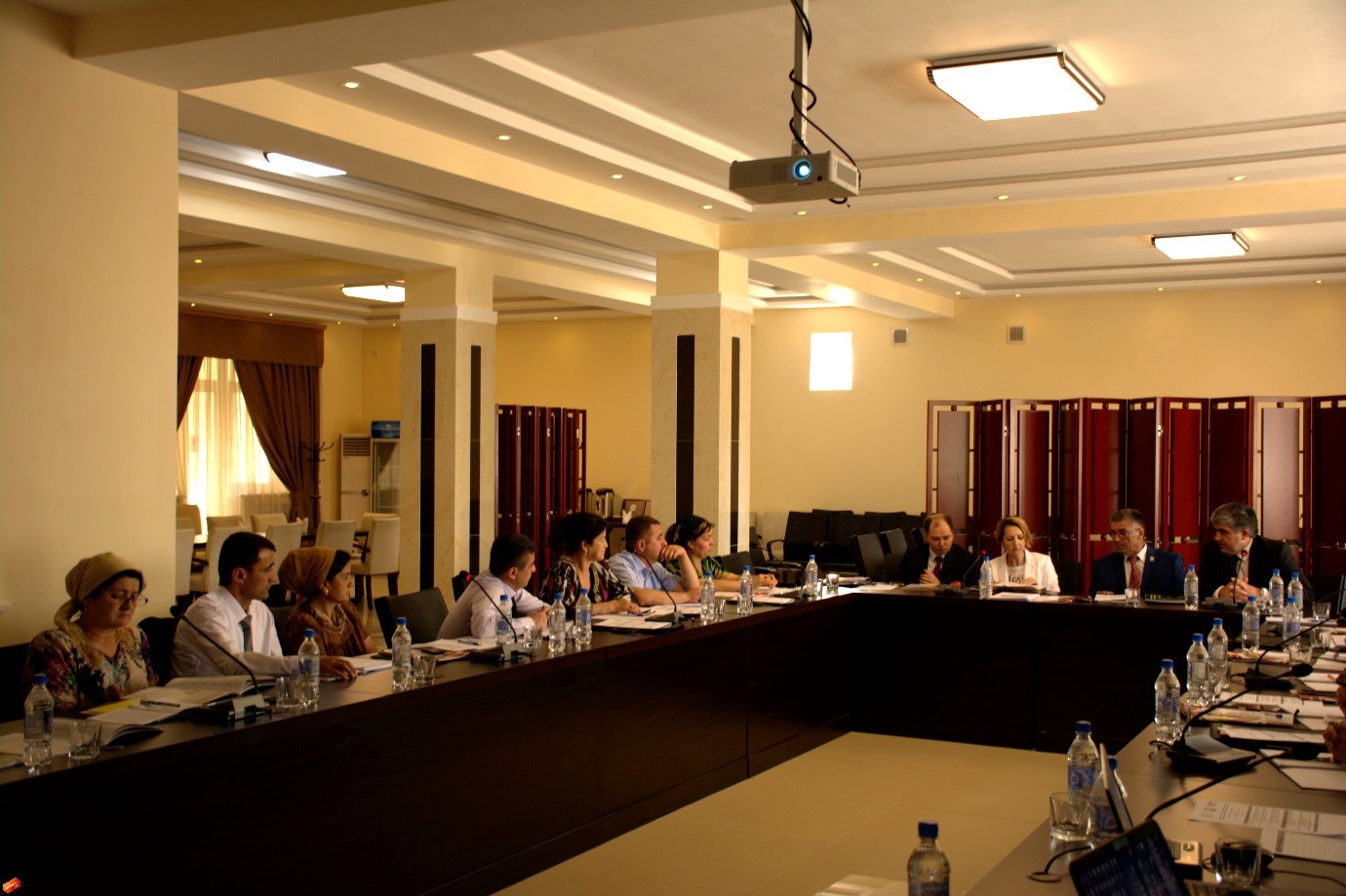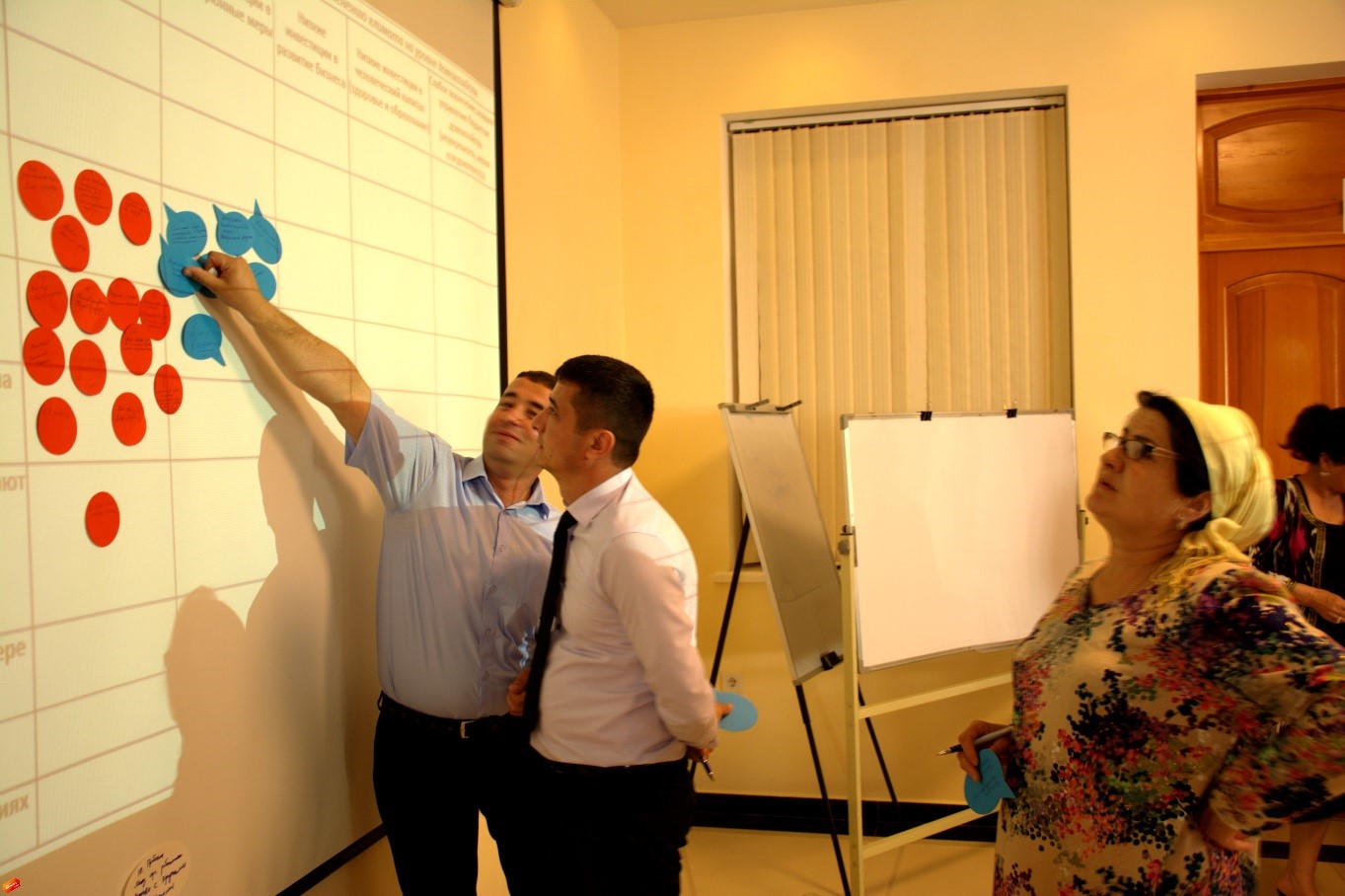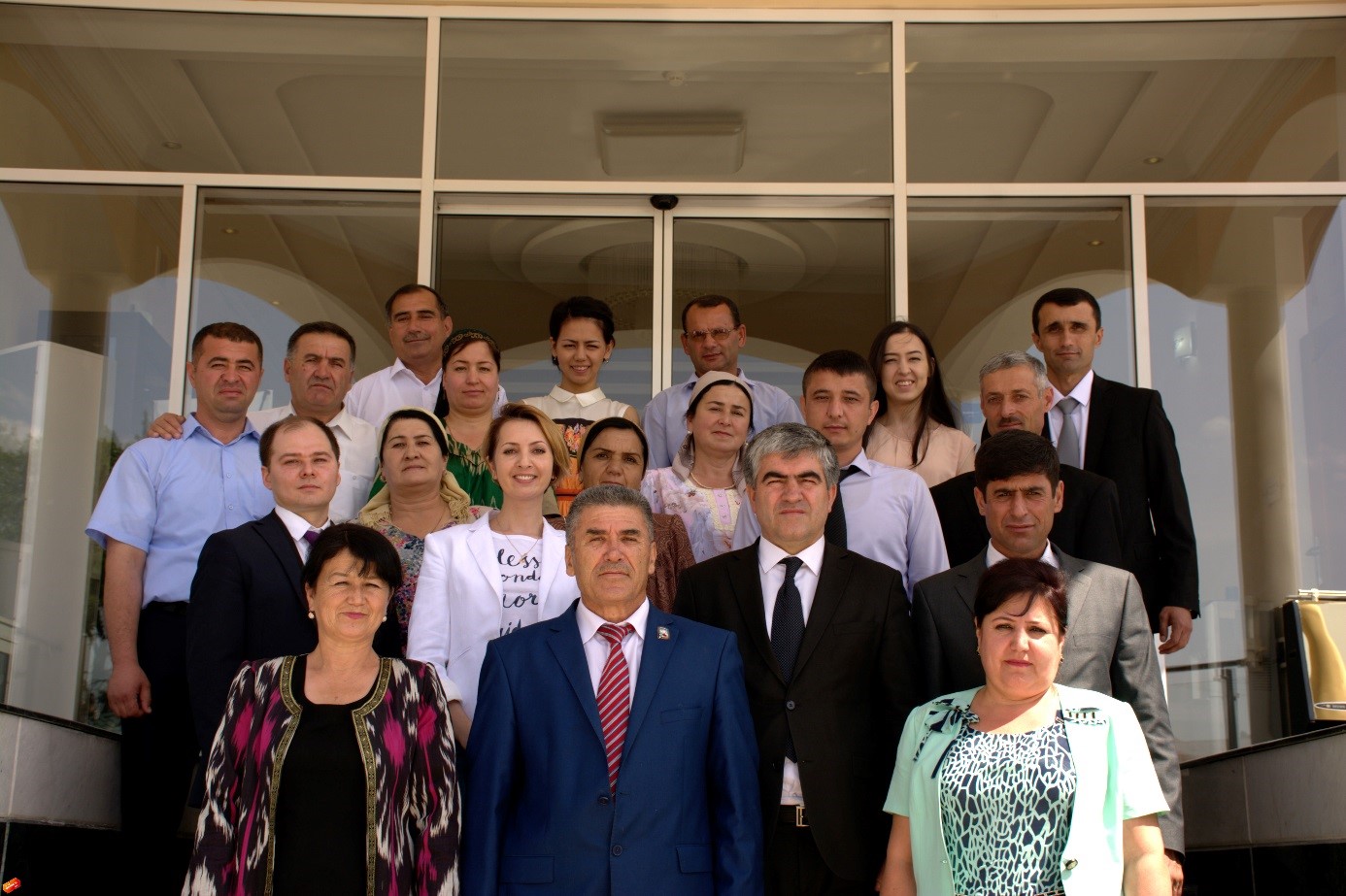Connecting science to policy making: migration, remittances and climate resilience in Tajikistan
May 15, 2017 a working meeting was held to discuss the preliminary research findings of the household survey, which was conducted in all areas of Tajikistan. The research is focused on migration, remittances and climate resilience. Over 25 participants took part in the meeting, representing the regions where the survey was conducted. During the work, the CAREC team introduced the progress of the project over the past 12 months, presented preliminary results of the analytical assessment report, findings of the household surveys, and a gender case study.

The research revealed that remittances in Tajikistan represent a huge potential for increasing the adaptive capacity. However, the management of those resources is often inefficient and unsustainable. For example, with regard to costs associated with natural disasters, current investments are focused primarily on disaster response measures, rather than on preventive measures. Similarly, it can be stated that in other relevant items of expenditure, investments are focused on so-called "hard interventions", such as small-scale construction activities. At the same time, tree planting being a very common measure and having a certain impact at the household level, does not always bring large-scale transformations at the community level. For more significant impact at the community level, it is necessary to consider: (a) joint collective actions; and (b) an integrated approach with a combination of "hard" (infrastructure, etc.) and "soft" (awareness raising, training, knowledge transfer, etc.) interventions.
The study also found out that shifting budget management functions from men to women offers opportunities to expand the economic rights of the migrant workers’ wives. However, in order for this social change to be accepted by society, it is important to integrate measures to increase the confidence and independence of women in budget planning and management. At the same time, observations also showed that under additional investments, women are ready to make greater financial contributions to such categories of family expenses as high education, healthcare, and entrepreneurship. This vision, in fact, is an integral part of the long-term sustainable future and enhancement of human capital, which is considered as a priority when planning the budget.
After discussing all key findings of the research, the participants of the working meeting took part in the road map development exercise, which was to plan steps to be undertaken to remove barriers and risks associated with climate resilience and the determination of a mechanism, which will enable to use and channel migrant workers' money in a more sustainable way. Participants also identified all respective stakeholders, who might implement the actions in the road map and provide technical and financial assistance.
The exercise once again highlighted that a stronger coordination between line ministries and department as well as with agencies, who deal with migration and employment topics should be assured, as this bring more opportunities for education, disaster risk reduction, trade and business development, financial management, and strengthening the capacity of a particularly vulnerable target group (women at the household level).


Project reference:
The project “Migration, remittances, adaptation and resilience to climate change in arid and semi-arid regions of Senegal and Tajikistan” is one of the research packages of PRISE project. PRISE (“Pathways to Resilience in Semi-Arid Economies”) is a multi-country initiative, which will generate new knowledge during five years about how to make economic development in semi-arid regions more equitable and resilient to climate change.
PRISE is carried out under the Collaborative Adaptation Research Initiative in Africa and Asia (CARIAA), with financial support from the UK Government’s Department (DfID) and the International Development Research Centre (IDRC), Canada.
